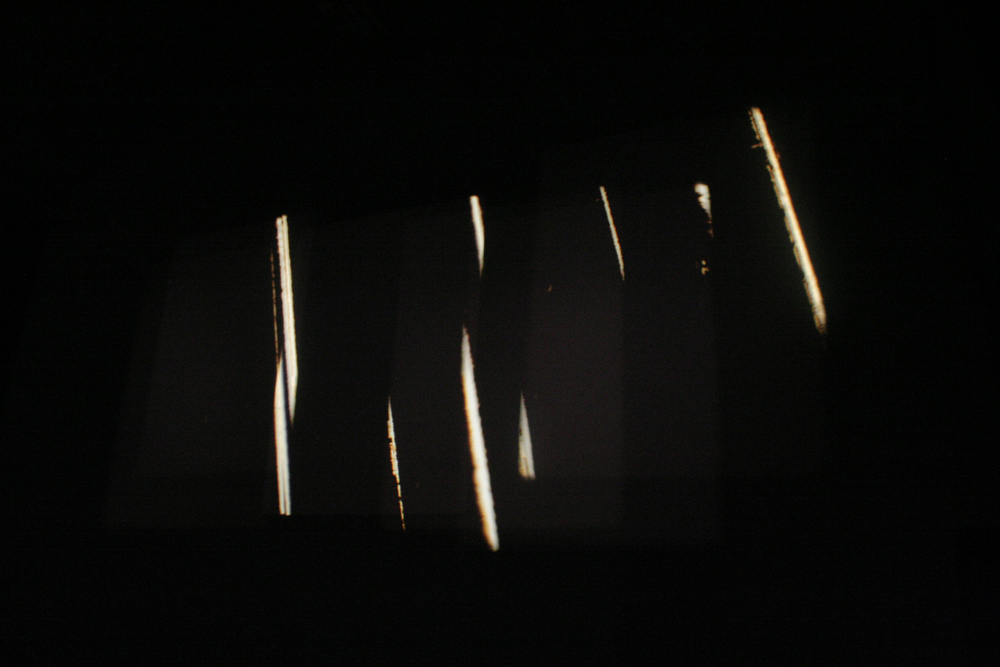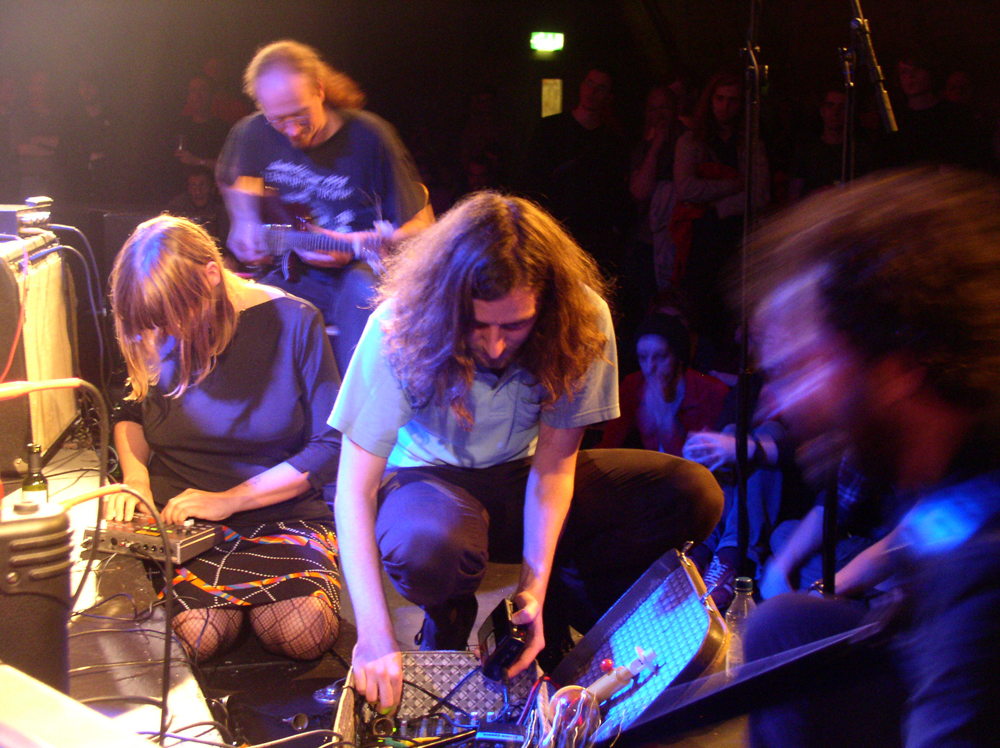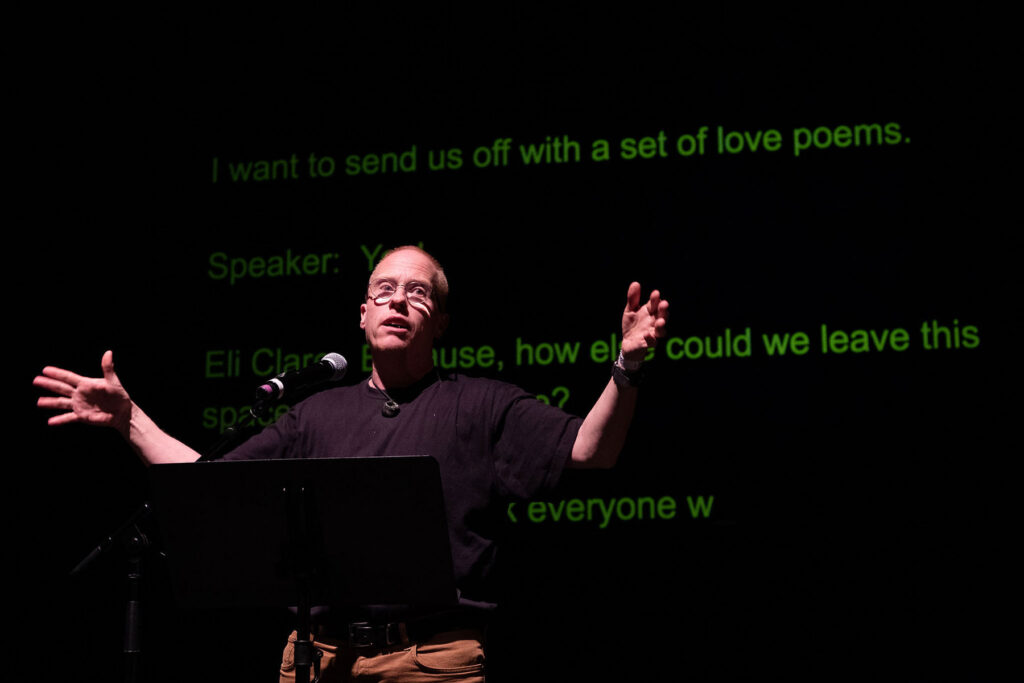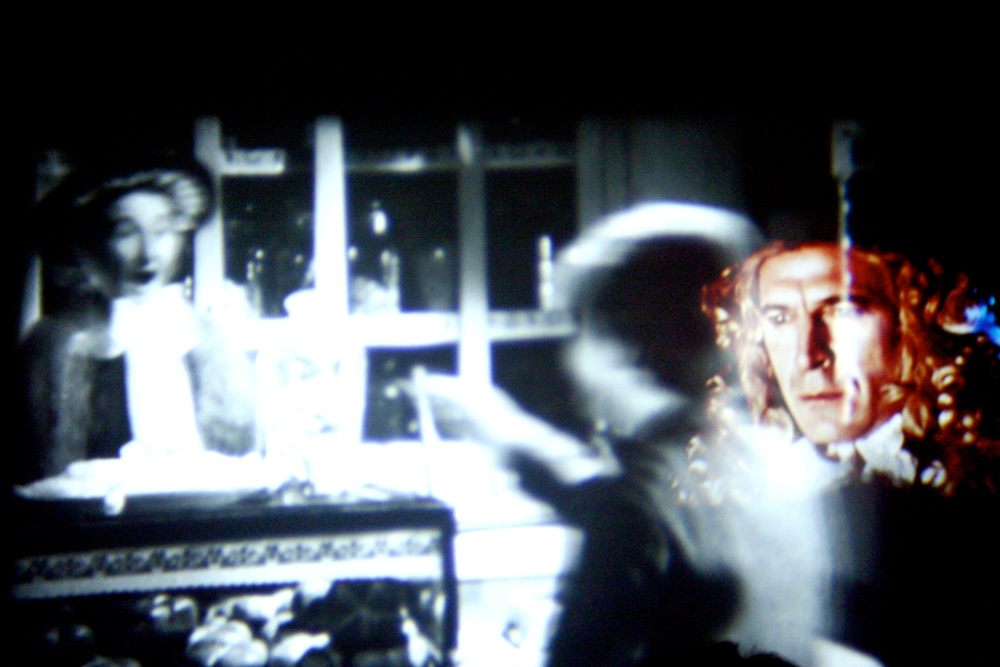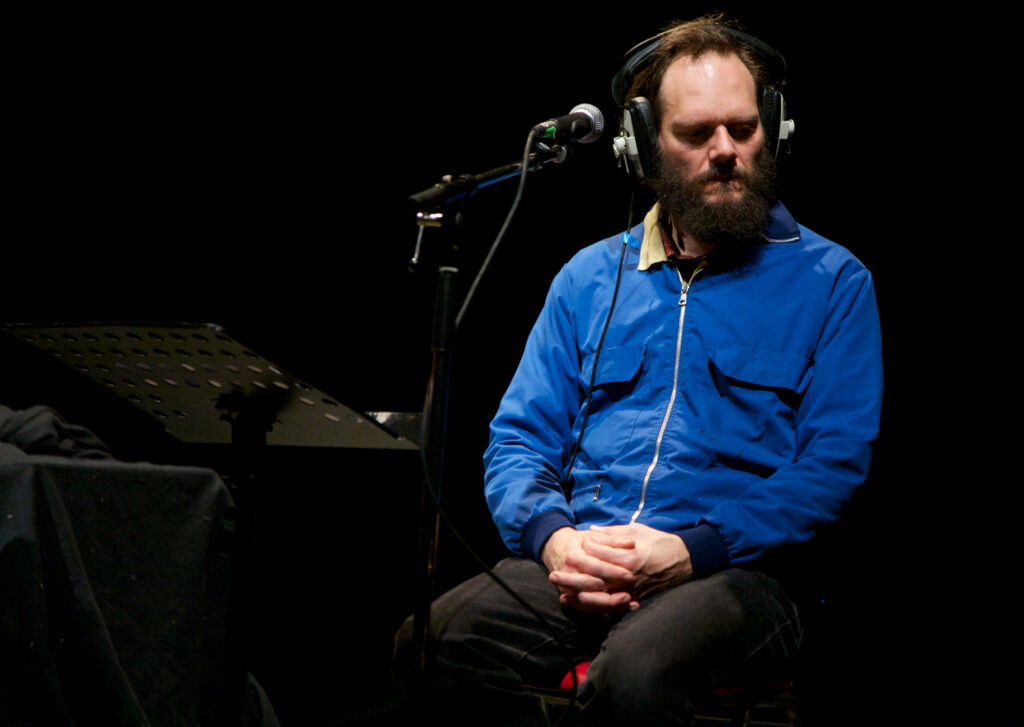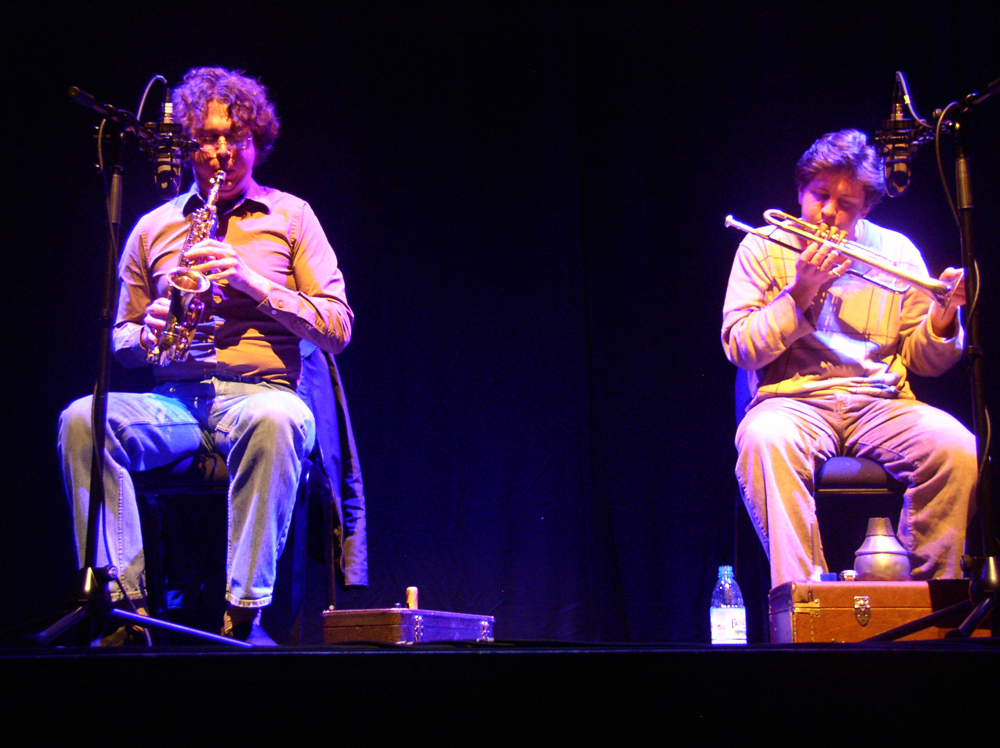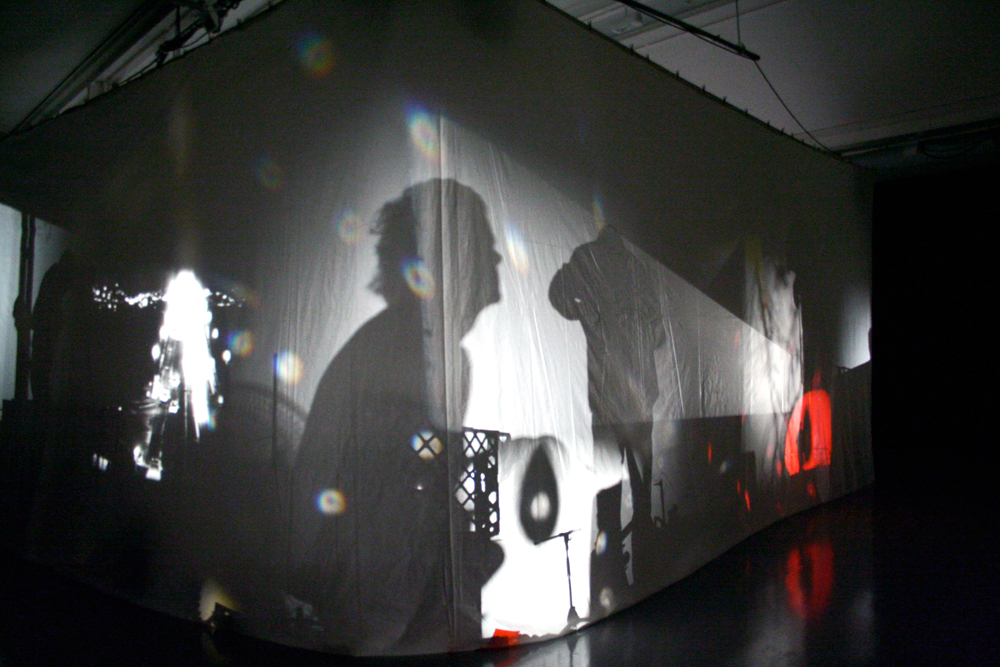
The Cube
Christophe Cardoen Etienne Caire Gaëlle Rouard Jerome Noetinger Kris Auger Lionel Marchetti Xavier Quérel
The Cube is a 6 hour performed installation in which sound and image are treated as independent but equal, where musicians and filmmakers sit alongside each other, improvise to and feed off both projected image and amplified and acoustic sound.





